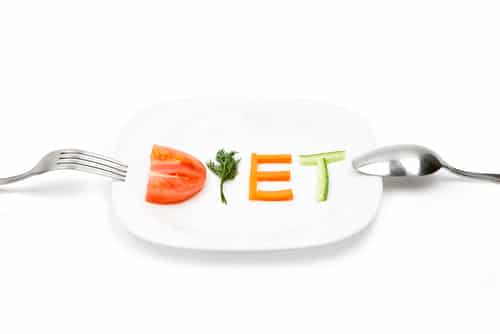 Even when you’re trying to lose weight, it’s not a good idea to drop your calorie count too low. Doing so places your body under stress, forcing it to adapt to avoid the threat of starvation. This adaptation involves an interplay of a variety of hormones. One of the most important of these is the thyroid hormone.
Even when you’re trying to lose weight, it’s not a good idea to drop your calorie count too low. Doing so places your body under stress, forcing it to adapt to avoid the threat of starvation. This adaptation involves an interplay of a variety of hormones. One of the most important of these is the thyroid hormone.
You may already know that thyroid hormone is the “master hormone” when it comes to regulating your metabolism. Thyroid hormone is produced by the butterfly-shaped gland located just under your larynx in your neck. Hormones produced by the thyroid gland affect the function of other glands too. When your thyroid produces too much or too little thyroid hormone, it has far-reaching effects on your body. In addition, your thyroid gland plays an active role in the breakdown of fat, temperature regulation and synthesis of proteins. It’s a very busy gland – and you want it to be that way if you’re trying to lose weight.
When Thyroid Function Slows Down
What happens when your thyroid is underactive? It can lead to infertility problems, brain fog, depression, fatigue, constipation, dry skin, hair loss and, of course, weight gain. What few people realize is that extreme dieting and calorie restriction in a fevered attempt to lose weight fast can backfire by reducing thyroid function and slowing down your metabolism.
Thyroid Hormones and Dieting
Your thyroid produces two hormones – T3 and T4. Your thyroid does the job of actually making these hormones, but it does it under the direction of your brain. Your hypothalamus signals your pituitary gland to release a protein called TSH. TSH acts directly on your thyroid gland to stimulate the production of T3 and T4. Once your thyroid has produced enough, T3 and T4 signal the pituitary to stop producing TSH through a feedback system when all is well and functioning as it should
Your thyroid gland actually produces much more T4 than it does T3, but T3 is the most active form of thyroid hormone. Once your thyroid makes T4, it’s converted to active T3 when it reaches tissues in your body. It’s T3 that binds to receptors on cells to regulate your metabolism.
So, how does dieting and calorie restriction throw things off? When you drop your calorie intake too low or place your body under stress in other ways, through injury or illness, less T4 is converted to T3. Instead, more is made into something called reverse T3.
The problem with reverse T3 is it isn’t active. What it does do is bind to the same receptors that T3 does and makes it difficult for T3 to bind. With reverse T3 keeping active T3 out of the picture, you burn less fat and carbohydrates and your metabolism, along with everything else, slows down. If you’re trying to lose body fat, this makes it quite a bit harder to achieve your objective. This type of thyroid dysfunction can be challenging to pick up on standard thyroid function blood tests unless your doctor measures reverse T3 levels.
Excessive Calorie Restriction Isn’t a Good Idea
Dropping your calorie count too low or eliminating whole food groups from your diet will slow your metabolism by its effect on thyroid hormones – and it can lead to nutritional deficiencies. In addition, it raises cortisol levels, further hindering the fat loss process and redistributing more fat to your belly. Plus, extreme calorie restriction has been linked with mood changes like depression.
Another consequence of excessive calorie restriction is the loss of bone mass and menstrual cycle changes. Ask yourself this question. How are you going to maintain a very low-calorie diet long term? Once you go back to eating normally, there’s a good chance you’ll regain the weight you lost due to a slower metabolism. The best way to avoid this is to not cut your calories back by more than 500 a day and burn more through exercise.
What Does This Mean?
Extreme dietary changes are rarely sustainable and aren’t good for your health or your metabolism. The same applies to excessive exercise. Long sessions of endurance exercise raise cortisol levels and can make it harder to lose body fat. Keep your exercise sessions to an hour or less by increasing the intensity – and make sure you’re resistance training to build more metabolically-active lean body mass. Don’t overstress your body with very-low-calorie diets and overtraining. It rarely delivers results.
References:
Neuroendocrinology Letters No. 6. Vol. 26, 2005.
The Journal of Clinical Endocrinology & Metabolism August 1, 2006 vol. 91 no. 8 3232-3235.
Psychosom Med. 2010 May;72(4):357-64. doi: 10.1097/PSY.0b013e3181d9523c. Epub 2010 Apr 5.

